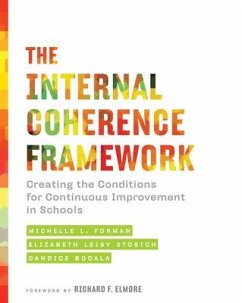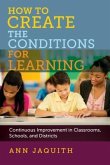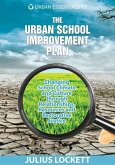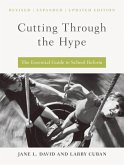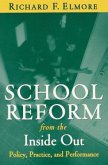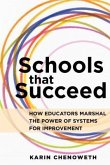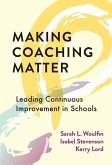The Internal Coherence Framework presents a system of research-based practices for assessing and developing the conditions that support adult and student learning in schools. School or system leaders who progress through this book with colleagues will develop a shared vision for ambitious teaching and learning anchored in the instructional core; organize the work of the leadership and teacher teams to advance this vision; and build psychologically safe team, school, and system cultures to support the risk taking and constructive challenges necessary to move schools or systems to the next level of performance. "This book provides a compelling call to action for educators to focus improvement work on the 'instructional core' the interactions among students, teachers, and content in classrooms. Even more importantly, it marks a clear path for taking that action: how to mobilize teams to focus on the core and then sustain and deepen their efforts. I have already begun integrating key insights from The Internal Coherence Framework into my Data Wise courses." -- Kathryn Parker Boudett, director of the Data Wise Project and lecturer on education, Harvard Graduate School of Education "Gathering proven best practices, the authors articulate clear, actionable processes that create and sustain learning communities in pursuing lasting improvement in student achievement. Educational reform is not for the faint of heart: The Internal Coherence Framework makes it doable." --Michael Sorum, former deputy superintendent, Fort Worth Independent School District, Texas "The Internal Coherence Framework is a rare example of how to create an effective structure that can be applied to any school or district. It should be required reading for teachers and administrators." --Jeffrey C. Riley, superintendent and receiver, Lawrence Public Schools, Massachusetts Michelle Forman works as a consultant helping schools and districts develop internal coherence. Elizabeth Leisy Stosich is a research and policy fellow at the Stanford Center for Opportunity Policy in Education. Candice Bocala is a senior research associate at WestEd, where she studies data use in education, professional learning, school improvement, and special education.

